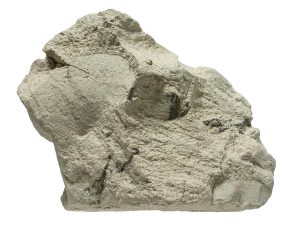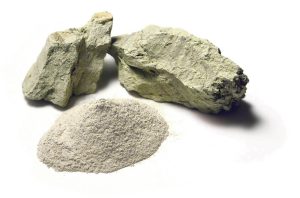Bentonite Clay: Benefits, Uses, and Applications Explained

Bentonite clay, a remarkable natural substance, has gained significant attention in recent years for its numerous benefits and versatile uses. Known for its unique properties, bentonite clay is utilized in various applications ranging from health and beauty to industrial purposes. This article will explore the definition, types, and health benefits of bentonite clay.
What is Bentonite Clay?
Bentonite clay is a naturally occurring clay formed from the weathering of volcanic ash, primarily composed of montmorillonite. This clay varies in composition and properties based on its origin. The term “bentonite” may refer to several types of clay, including sodium bentonite and calcium bentonite, each possessing distinct characteristics and uses.
Definition of Bentonite
Bentonite is defined as a type of absorbent clay that consists mainly of montmorillonite, a mineral known for its swelling properties when mixed with water. The ability of bentonite to absorb moisture and expand makes it valuable for various applications. Bentonite’s unique structure allows it to capture and remove impurities, contributing to its effectiveness in health and beauty products.
Types of Bentonite Clay
There are primarily two types of bentonite clay: sodium bentonite and calcium bentonite. Sodium bentonite is renowned for its swelling capacity, making it ideal for applications such as sealing and drilling. Conversely, calcium bentonite is commonly used in skincare and health supplements due to its high mineral content and gentle properties. Each type of bentonite offers unique benefits based on its composition.
Composition of Sodium Bentonite
Sodium bentonite is primarily composed of sodium ions, which contribute to its swelling properties and absorption capabilities. The chemical structure of sodium bentonite allows it to expand significantly when in contact with water, making it an excellent choice for detoxification and purification processes. The unique composition of sodium bentonite enhances its effectiveness in various applications, particularly in health and environmental contexts.
Health Benefits of Bentonite Clay
Bentonite clay is celebrated for its numerous health benefits, making it a popular choice in natural wellness practices. From detoxification to skin care and digestive support, the capacity of bentonite to absorb toxins and impurities contributes to its reputation as a powerful healing agent. Understanding the health benefits of bentonite clay can help individuals harness its potential for improved well-being.
Detoxification Properties
The detoxification properties of bentonite clay are well-documented, as it is able to bind to harmful toxins and heavy metals in the body, facilitating their elimination. When individuals use bentonite clay, they may experience reduced levels of toxins, leading to improved overall health. The absorbent nature of bentonite allows it to capture impurities effectively, promoting a natural cleansing process.
Skin Care Benefits
Bentonite clay is also used extensively in skincare due to its ability to draw out impurities and excess oil from the skin. Applying bentonite clay masks can help unclog pores, resulting in clearer and healthier skin. The soothing properties of bentonite may also aid in reducing inflammation and irritation, making it a popular ingredient in natural skin care products.
Digestive Health Support
Oral bentonite has been reported to support digestive health by promoting a balanced gut environment. The detoxifying properties of bentonite clay may aid in alleviating digestive discomfort and reducing bloating. Incorporating bentonite clay into a wellness routine can enhance gut health, contributing to overall well-being. The significant benefits of bentonite for digestive support make it a valuable addition to natural health practices.
Common Uses of Bentonite Clay
Beauty and Skin Treatments
Bentonite clay is widely recognized in beauty and skincare for its remarkable ability to detoxify and purify the skin. When used in facial masks, the absorbent properties of bentonite help to draw out impurities and excess oil, resulting in clearer skin. Additionally, calcium bentonite clay is often featured in natural beauty products due to its gentle nature, making it suitable for sensitive skin types. The effect of bentonite on skin texture and clarity has made it a staple in spas and skincare routines.
Industrial Applications
Bentonite clay has significant industrial applications, particularly in construction and environmental projects. Sodium bentonite is frequently utilized as a sealing agent in landfills and ponds due to its ability to expand and form a barrier against water infiltration. Moreover, bentonite is used in drilling fluids to stabilize boreholes, showcasing its versatility across various industrial sectors. The use of bentonite contributes to efficient and effective operations in construction and mineral extraction, emphasizing its importance in industrial processes.
Food and Beverage Industry
In the food and beverage industry, bentonite clay is employed as a clarifying agent to improve the purity and appearance of liquids. Its absorbent nature allows bentonite to bind to impurities and sediments, making it invaluable in processes such as wine and juice production. Additionally, certain food-grade bentonites are reported to enhance the quality of certain foods, providing a natural solution for clarity without compromising safety. The inclusion of bentonite in food processing exemplifies its multifaceted applications in promoting quality and safety.
Methods for Bentonite Clay Application
Topical Applications
Topical applications of bentonite clay are among the most popular methods for utilizing its benefits. When mixed with water or other natural ingredients, bentonite clay can be applied as a mask to cleanse and rejuvenate the skin. The capacity of bentonite to absorb toxins makes it an effective treatment for acne and oily skin. Additionally, bentonite is sometimes used in soothing treatments for minor burns or irritations, showcasing its versatility in skincare regimens. Regular use of bentonite clay masks can lead to improved skin health and appearance.
Internal Consumption Methods
Oral bentonite is gaining traction as a supplement for digestive health. It can be consumed in powdered form, often mixed with water, to promote gut balance and detoxification. The significant properties of bentonite allow it to bind to toxins and support the digestive system. However, it is crucial to ensure the amount of bentonite consumed is appropriate, as excessive intake may have adverse effects. Incorporating bentonite into a wellness routine can enhance overall health, especially when used responsibly.
Environmental Uses
The environmental applications of bentonite clay are noteworthy, particularly in waste management and soil stabilization. Bentonite is frequently utilized to create impermeable barriers that prevent leachate from contaminating the surrounding environment. Its natural ability to expand and seal makes it an effective agent in landfill construction. Furthermore, bentonite is also used in agriculture to improve soil quality by enhancing water retention and nutrient availability. The environmentally friendly aspects of bentonite highlight its importance in sustainable practices.
Safety and Precautions
Potential Side Effects
While bentonite clay is generally considered safe for most uses, potential side effects should be acknowledged. Some individuals may experience gastrointestinal discomfort when consuming bentonite, particularly if taken in excessive amounts. Additionally, topical applications may lead to allergic reactions in sensitive individuals. It is essential to monitor the body’s response when introducing bentonite into a health regimen to ensure a safe experience. Understanding the potential side effects of bentonite is crucial for safe use.
Recommended Dosage Guidelines
When using bentonite clay, adhering to recommended dosage guidelines is vital for safety and effectiveness. For internal consumption, a common guideline suggests starting with a small amount of bentonite mixed with water, gradually increasing as tolerated. It is generally advised to limit intake to prevent any adverse effects. For topical applications, a patch test is recommended to gauge skin sensitivity. Observing these guidelines can help individuals safely incorporate bentonite into their routines while maximizing its benefits.
Consultation with Healthcare Professionals
Before incorporating bentonite clay into any health regimen, consultation with healthcare professionals is highly recommended. Healthcare providers can offer personalized advice based on individual health needs and conditions. This is particularly important for pregnant or nursing individuals, as well as those with existing health issues. Engaging with knowledgeable professionals can help ensure the safe and effective use of bentonite, allowing individuals to enjoy its benefits while minimizing potential risks.


